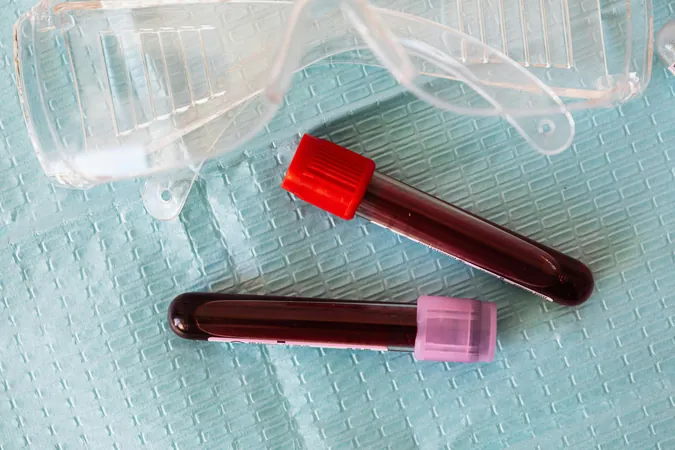
Surprising Traits of Alcohol-Associated Cirrhosis Patients: Why Younger Individuals with Mental Health Challenges Seek Treatment More Often
2024-12-11
Author: Yu
Introduction
A groundbreaking new study reveals striking insights into the characteristics of patients diagnosed with alcohol-associated cirrhosis who actively seek treatment for alcohol use disorder (AUD). Researchers found that individuals who are younger and grappling with anxiety or depression are significantly more likely to pursue help for their alcohol-related issues.
Study Overview
Led by Jeremy W. Luk from the National Institute on Alcohol Abuse and Alcoholism, this research highlights the critical need for targeted outreach and a comprehensive approach that integrates treatments for alcohol-associated liver disease (ALD) with effective AUD interventions. The study underscores the relationship between mental health struggles and the treatment-seeking behavior of these patients, presenting a call to action for healthcare providers.
Key Findings
One of the key takeaways from the research is the connection between age, mental health, and treatment utilization. The analysis points to prior treatment history and co-occurring psychiatric issues as crucial factors. Surprisingly, many patients fail to seek help despite their dire condition, raising important questions about the role of quality of life in the recovery process.
Demographic and Clinical Analysis
In examining the demographic and clinical factors associated with AUD treatment utilization, the researchers surveyed 196 participants with liver cirrhosis at specialized hepatology clinics across three academic medical centers from February 2022 to February 2023. Participants were required to be at least 18 years old and primarily English- or Spanish-speaking while having attended a hepatology clinic within the past six months.
Study Insights
Interestingly, during the study, none of the participants presented with acute alcohol-induced hepatitis—a relevant detail that emphasizes the diversity of patient backgrounds. Each participant completed an in-depth questionnaire addressing liver disease quality of life, mental health symptoms, and the extent of AUD treatment experienced.
Results
The results were illuminating: 67% of the participants reported having sought AUD treatment at some point in their lives, with 32% acknowledging they had pursued treatment within the last year. Notably, those seeking treatment were predominantly younger individuals who exhibited lower scores regarding their quality of life related to liver disease and higher scores on anxiety, depression, and problematic drinking behaviors.
Age and Treatment Engagement
The analysis further revealed that older participants were less likely to have engaged in pharmacological treatment or combined approaches, as the odds increased for those with a history of anxiety or depression. This trend continued with a striking finding that those currently experiencing significant anxiety or depressive symptoms were more inclined to seek treatment within the past year.
Recommendations
To address these mental health concerns, the study advocates for the implementation of validated assessment tools, such as the GAD-7 for anxiety and the PHQ-8 for depression, in hepatology practices. The goal? To promote early intervention and appropriate referrals to behavioral health support, ultimately leading to improved outcomes for patients dealing with both liver disease and AUD.
Conclusion
This study not only sheds light on the patient profiles who are more inclined to seek treatment but also emphasizes the necessity of integrated mental health strategies within liver disease management. As awareness grows about the interconnectedness of mental health and physical ailments, the potential for better health outcomes becomes a tangible goal.
Future Directions
Stay tuned for more updates as the field of alcohol-associated liver disease treatment continues to evolve!






 Brasil (PT)
Brasil (PT)
 Canada (EN)
Canada (EN)
 Chile (ES)
Chile (ES)
 España (ES)
España (ES)
 France (FR)
France (FR)
 Hong Kong (EN)
Hong Kong (EN)
 Italia (IT)
Italia (IT)
 日本 (JA)
日本 (JA)
 Magyarország (HU)
Magyarország (HU)
 Norge (NO)
Norge (NO)
 Polska (PL)
Polska (PL)
 Schweiz (DE)
Schweiz (DE)
 Singapore (EN)
Singapore (EN)
 Sverige (SV)
Sverige (SV)
 Suomi (FI)
Suomi (FI)
 Türkiye (TR)
Türkiye (TR)